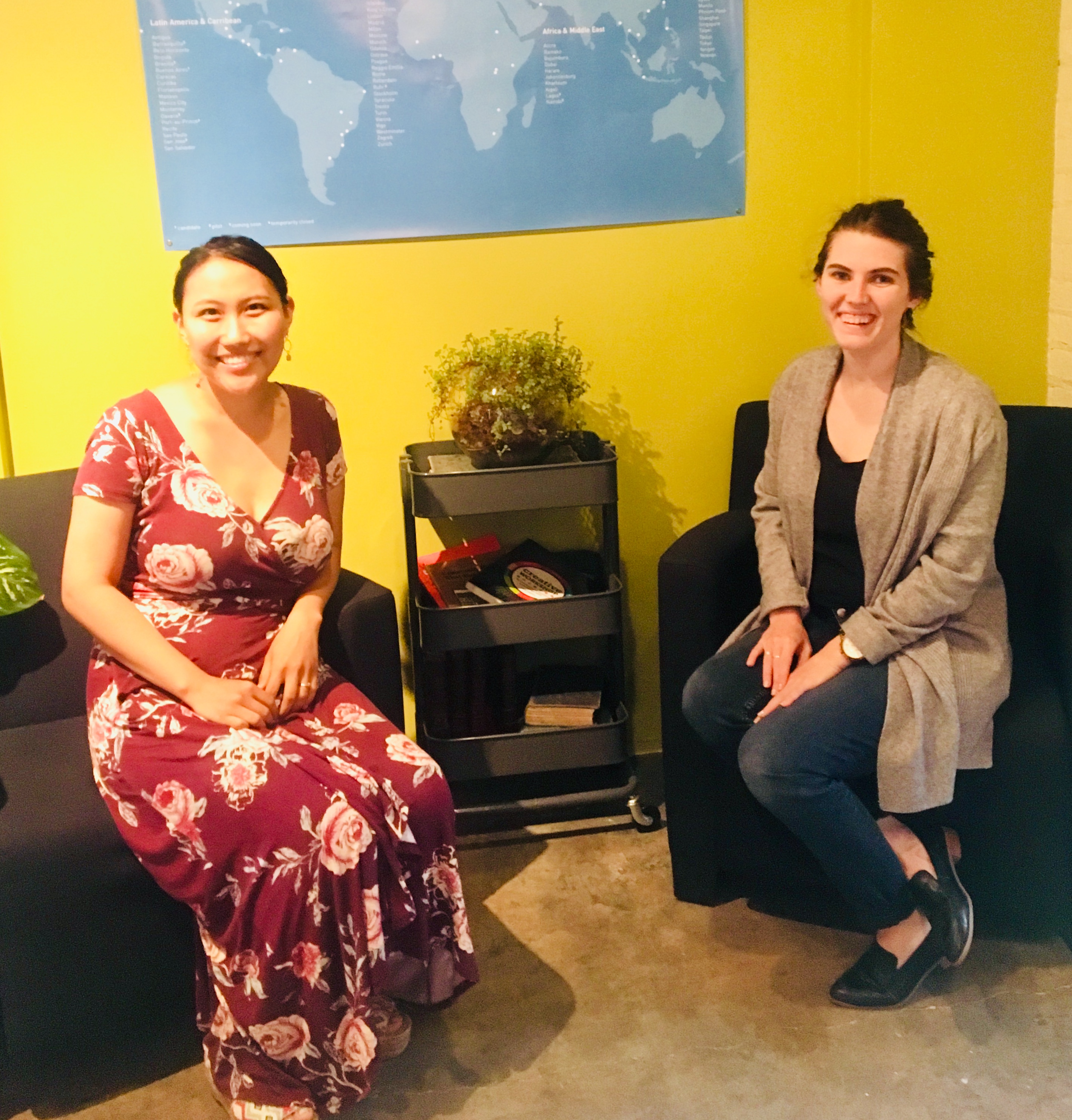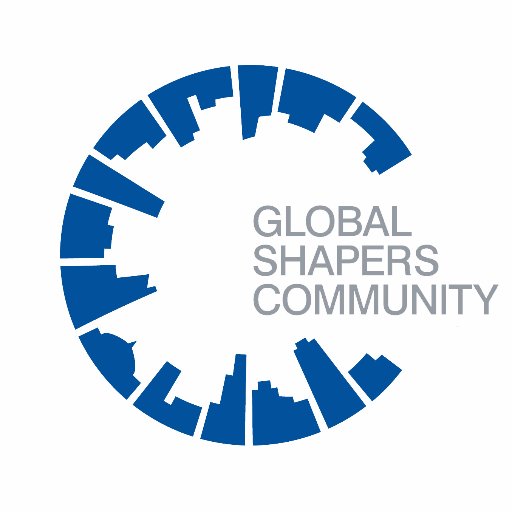This month, Impact Hub is highlighting partnerships and the value that they bring to an organization. In celebration of that, we recently talked to Jessica Moes and Namuun Purevdorj, both members of the Global Shapers, another one of our partners. Note that during the interview, these Shapers at times refer to their community organization as a “hub,” as well as to Impact Hub as “the Hub.” It’s just one of the many things our organizations have in common! Read on to learn more.

Speaking about impact and social change, could you share an example of one of the projects you have been working on?
Namuun
Sure. So the main goal is all about self organizing youth and each community to voice solutions for the challenges in their local, regional, or even global, communities. Jessica mentioned how hubs cooperate to solve certain issues. For example, we have meetings in collaboration with other hubs, for example with the Milwaukee region. We have annual regional conferences where we come together in one of the city hubs to further collaborate and share our ideas and challenges. This year’s regional conference for North America and the Carribeans was in Atlanta. So there are definitely ways that we can come together on a local, regional, as well as a global level. There are several projects that our hub has done over the past five years, but the most recent project that was a highlight for me was the Shaping Fashion initiative by one of our members, Ashleyn.
Jessica
Ashleyn also happens to have another partnership with Impact Hub.
Namuun
Yes. So the Shaping Fashion initiative was all about waste and how that affects the environment. Her project was not just local or regional; it was actually global: many other members and other hubs joined together to have a whole week dedicated to sustainable fashion, where people came in and were able to look at ways that they could participate. I thought that was pretty cool.
Of course, there are other ways we engage, as well. For example, financial literacy is a big topic that I’ve seen in different hubs, whether through education, workshops, websites, or just getting youth plugged in. Specifically, when we’re talking about financial literacy or projects related to finance, it’s about being able to bring about equity in the community, so that everyone is able to have the opportunity to learn. In fact, equity is a very common theme for all of us: making sure that we are breaking the cycle of intergenerational inequity in our communities.
That’s an important theme. In thinking of that, and about Global Shapers in general, how would you say that its mission aligns with the mission of Impact Hub?
Jessica
I’ll tackle that. We’ve had a partnership with Impact Hub for at least three to four years, well before Namuun and I were even a part of this group. So I would say first and foremost, we’ve informed each other over time. The way that I’ve known Global Shapers has been deeply informed by Impact Hub’s mission. And I think vice versa. There’s this philosophy within Impact Hub, that innovation comes from collaboration, by pulling together people who might not normally intersect with one another on a day to day basis in their work, and putting them into a collaborative space together in order to bounce ideas off of one another. This helps make ideas become bigger and to stick more within communities in the ways that we really truly want. This also offers outside perspectives you might not normally think to consult, because it’s bringing in the voices that you might not normally have access to. And so in many ways, I think Global Shapers mirrors that by trying to host very similar discussions, even around ideas that certain members of our hub – but not necessarily everybody – are super interested in. But then you bring these ideas to the table and you say this is really important to me, I’m working on a project related to this idea, Person X might speak up and say, “Hey, this isn’t necessarily something I normally get involved with, but have you thought about this aspect, or this aspect, or how you’re going to interact with this community with regard to this particular topic?” So by being in a space with other people that might not normally interact, and being in on those conversations, is useful for skyrocketing those projects.
That’s a great point. As you said, Impact Hub similarly fosters rich interaction with organizations and people in a way that can be creative and helpful. Namuun, what’s your perspective?
Namuun
I would add that the resources that we have from Impact Hub – not just the space, but other resources like the Skills à la Carte sessions, for example, are very useful. And, again, diversity is important. So being plugged in, not just within the Shapers, but also with other people at Impact Hub is a bonus. With the age limit, some Impact Hub members may not be able to join our Shapers hub. However, we can still create relationships that help set us up with really great advisors and collaborators, and vice versa.
Jessica
When we talk about partnerships, I’d like to highlight that Impact Hub focuses on the Sustainable Development Goals, and as a hub that is part of a global network informed by the World Economic Forum, we’re also deeply guided by those Sustainable Development Goals. A specific project that we’re working on right now in alignment with Impact Hub is a series on the Sustainable Development Goals. Each month, we bring in local leaders working on a Sustainable Development Goal for a roundtable discussion about how that work is being done here in Minneapolis – St. Paul. We’ve now aligned those meeting rhythms with Impact Hub’s regular rhythm of approaching the Sustainable Development Goals. So that’s another cool project that we’re now working on in collaboration.
Namuun
One more important point in which we strengthen each other might be in our branding. We are very fortunate to have the Impact Hub name alongside our name on certain events, not only in our SDG series. Together, we amplify our reach.
Do you have any recommendations to other organizations when they’re looking at partnering together on projects or as institutions?
Namuun
The number one thing is making sure that we align on values. We have to ask ourselves why we are collaborating, why we are using the space, who we are catering to, and what the end goals are. Making sure that those questions are asked and answered up front, that they are aligned, is key.
Jessica
Recognizing that all the players at the table have equal skin in the game, and there should be a degree of equal benefit from the relationship, is also important. Each organization needs to make it a win-win situation, so that everybody is getting something out of the partnership and nobody feels exploited. Transparency throughout the whole process, and building the partnership with that hope and mindset that there’s a very intentional, desired outcomes for both parties, makes for a success. There also needs to always be a focus on true partnership.
